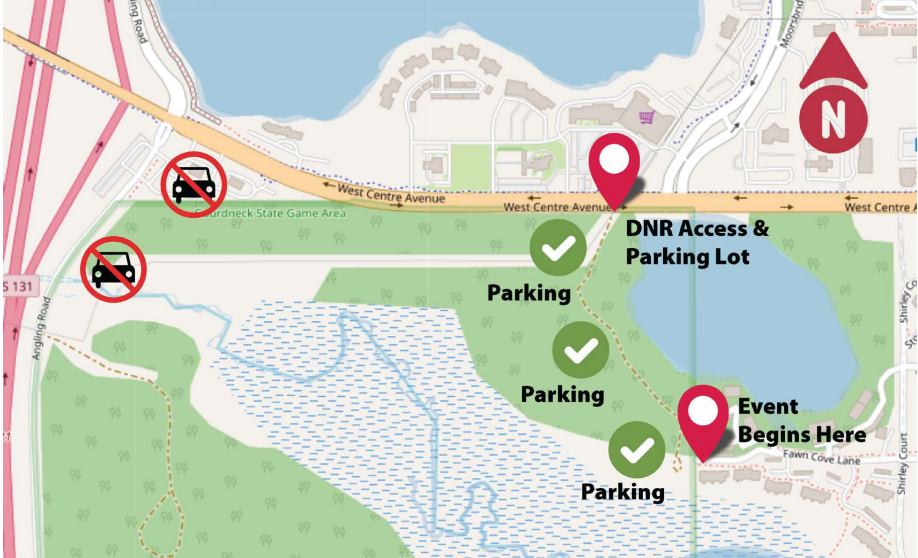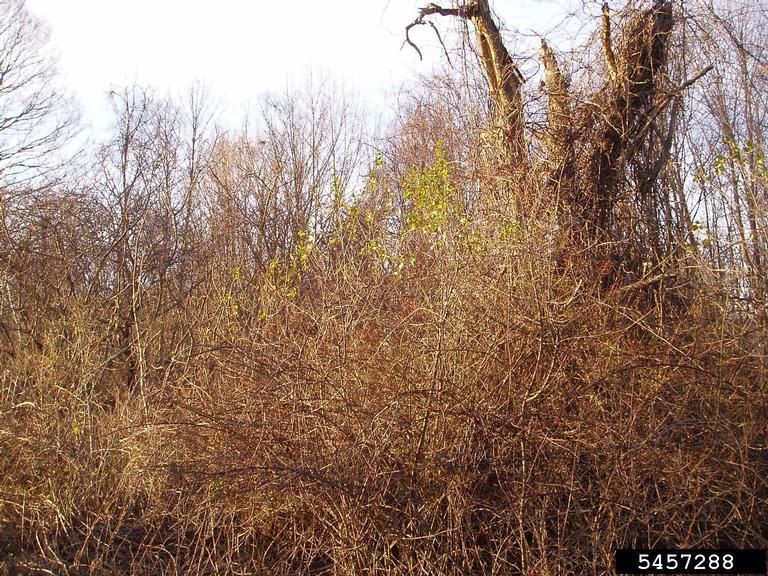OTG Volunteers Needed: Removing Invasive Vegetation at Gourdneck State Game Area
Once again, MUCC’s On the Ground program is partnering with the City of Portage Parks and Recreation and the Michigan DNR for another volunteer event! This event will take place at Gourdneck State Game Area near Portage. Volunteers are needed on Saturday, January 18, 2025, from 9 AM – 12 PM. This project will involve removing invasive woody vegetation to make room for native plants to grow. For more details and to register, click HERE.

About the Project
This project will be a continuation of previous invasive removal efforts at the state game area in a wetland ecosystem. Volunteers will meet at the Hampton Lake Trail entrance off Centre Avenue (42°11'50.0"N 85°38'05.9"W). Closed-toed and waterproof footwear is recommended for this event, although waders or waterproof pants would also be a good choice. Snacks and water will be provided throughout the day. This event will take place rain or shine except in the case of severe weather so please dress accordingly. Volunteers should plan to be outside for a minimum of three hours. All registered volunteers will receive lunch and a free appreciation gift for their efforts. Any necessary equipment including loppers and work gloves will also be provided.
Why is it Important?
According to the USDA National Invasive Species Information Center, an invasive species is one that is “non-native (or alien) to the ecosystem under consideration, AND whose introduction causes or is likely to cause economic or environmental harm or harm to human health”. These species are often called “invasive” because they were not originally from an area and instead made their way in, taking over and destroying high-quality habitat as they went. Additionally, an invasive species can be either a plant, animal, or other organism. Common examples of invasive species in Michigan include plants like autumn olive and garlic mustard, and organisms like the Asian long-horned beetle and red swamp crayfish.
Eliminating invasive species is important because it helps alleviate the harm they cause to the environment. Many invasive plants can grow quickly and overtake an area, degrading the surrounding habitat. Woody invasive plants like glossy buckthorn, autumn olive, and bush honeysuckle form dense stands that can overcrowd an area and prevent native plants from growing. Some invasive plants like multiflora rose can also form large thorny thickets that restrict wildlife movement through the landscape.

Learn More
Want to learn more about directly combating invasive species here in Michigan? Visit mucc.org/on-the-ground for more information and a list of upcoming projects. The On the Ground program works to conserve and enhance public lands by hosting volunteer workdays geared towards improving fish and wildlife habitat. Common habitat projects include invasive species removal, brush pile building, river cleanups, tree plantings, and more. We hope to see you at a future invasive species project or other OTG event!
Recent Posts



